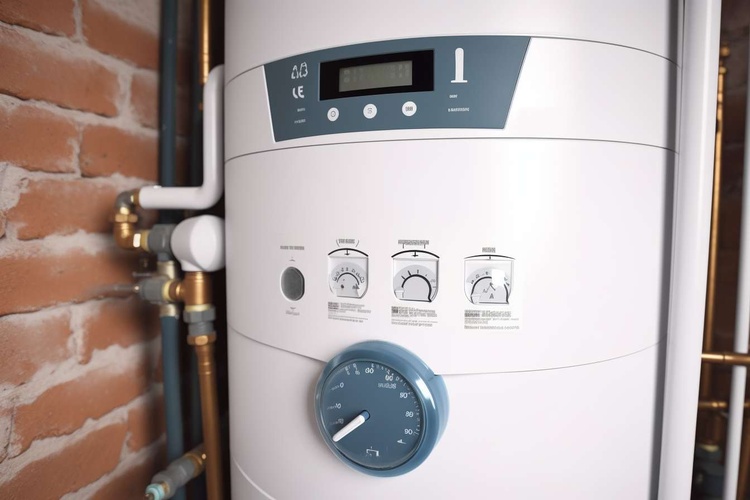Water Heaters and Boilers: Understanding Your Home's Heating Options
Water heaters and boilers are essential components of any modern home's heating system. These devices provide hot water for various household needs, from showers and washing machines to space heating. Understanding the differences between water heaters and boilers, as well as their various types and functionalities, can help homeowners make informed decisions about their heating systems.

Water heaters heat water and store it in a tank until needed, maintaining the temperature through insulation and occasional reheating. Boilers heat water to produce steam or hot water, which is then circulated through pipes to radiators or underfloor heating systems to warm the living spaces.
What Types of Water Heaters Are Available?
There are several types of water heaters available on the market, each with its own advantages and considerations:
-
Tank-style water heaters: These traditional units store and heat a large volume of water in an insulated tank. They’re available in gas, electric, and oil-fired models.
-
Tankless water heaters: Also known as on-demand water heaters, these units heat water directly as it flows through the device, without the need for a storage tank.
-
Heat pump water heaters: These energy-efficient units use electricity to move heat from the air or ground to heat water, rather than generating heat directly.
-
Solar water heaters: These systems use solar panels to capture the sun’s energy and heat water, often with a backup heating system for cloudy days.
-
Condensing water heaters: These high-efficiency units capture and use exhaust gases to heat water, making them more energy-efficient than traditional models.
What Are the Different Types of Boilers?
Boilers come in various types, each suited to different heating needs and fuel sources:
-
Combi boilers: These compact units provide both space heating and hot water on demand, without the need for a separate water tank.
-
System boilers: These boilers work with a separate hot water storage cylinder, making them suitable for homes with multiple bathrooms or high hot water demand.
-
Conventional boilers: Also known as heat-only boilers, these systems work with both a cold water storage tank and a hot water cylinder.
-
Biomass boilers: These eco-friendly options burn wood pellets, chips, or logs to provide heating and hot water.
-
Condensing boilers: Similar to condensing water heaters, these high-efficiency units recover heat from exhaust gases to improve overall efficiency.
How Do You Choose Between a Water Heater and a Boiler?
The choice between a water heater and a boiler depends on several factors:
-
Existing infrastructure: If your home already has a hydronic heating system (radiators or underfloor heating), a boiler might be the most suitable option.
-
Climate: In colder regions, a boiler’s ability to provide both space heating and hot water can be advantageous.
-
Energy efficiency: Modern condensing boilers and high-efficiency water heaters can offer significant energy savings compared to older models.
-
Space constraints: Tankless water heaters and combi boilers can be good options for homes with limited space.
-
Hot water demand: For homes with high hot water usage, a system boiler with a storage tank or a large tank-style water heater might be more appropriate.
What Are the Energy Efficiency Considerations?
Energy efficiency is a crucial factor when choosing between water heaters and boilers. Here’s a comparison of energy efficiency ratings for different types of water heaters and boilers:
| Type | Energy Efficiency Rating | Annual Energy Cost Estimate |
|---|---|---|
| Standard Tank Water Heater | 0.60 - 0.65 EF | $400 - $600 |
| Tankless Water Heater | 0.82 - 0.95 EF | $230 - $350 |
| Heat Pump Water Heater | 2.00 - 3.50 EF | $115 - $220 |
| Condensing Boiler | 90% - 98% AFUE | $600 - $800 |
| Standard Boiler | 80% - 85% AFUE | $800 - $1,000 |
Prices, rates, or cost estimates mentioned in this article are based on the latest available information but may change over time. Independent research is advised before making financial decisions.
EF (Energy Factor) is used for water heaters, while AFUE (Annual Fuel Utilization Efficiency) is used for boilers. Higher numbers indicate better efficiency and potentially lower operating costs.
What Maintenance is Required for Water Heaters and Boilers?
Regular maintenance is essential for both water heaters and boilers to ensure optimal performance, efficiency, and longevity. For water heaters, this typically includes:
-
Annual flushing to remove sediment buildup
-
Checking the anode rod every 3-5 years
-
Inspecting valves and connections for leaks
-
Testing the pressure relief valve
Boiler maintenance often involves:
-
Annual professional inspections
-
Checking and maintaining proper water pressure
-
Bleeding radiators to remove air pockets
-
Inspecting pipes and connections for leaks
-
Cleaning or replacing filters
By understanding the differences, types, and maintenance requirements of water heaters and boilers, homeowners can make informed decisions about their home heating systems. Whether opting for a high-efficiency water heater or a modern condensing boiler, choosing the right system can lead to improved comfort, energy savings, and long-term satisfaction with your home’s heating solution.






